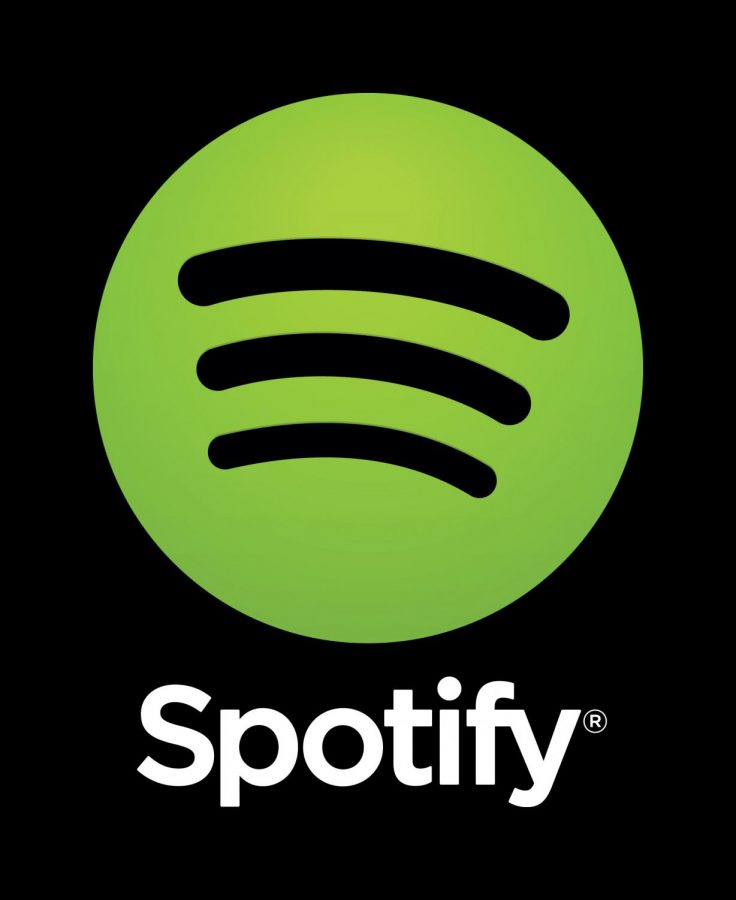Spotify Embroiled in Lawsuits, Looking to Go Public
January 24, 2018
One of the most powerful and well-known music streaming companies in the world is now under some major heat after a lawsuit has surfaced that they have tried to take some major shortcuts. Well known artists like Tom Petty, Neil Young, and Janis Joplin are claiming they were not given the money that Spotify had originally agreed upon.
The lawsuit now being filed could cost Spotify up to 1.6 billion dollars, the biggest lawsuit that Spotify has ever had to deal with. These three artists and more under the Wixen Music Group are wanting $150,000 for over 10,000 songs each.
This is not the first time that Spotify has been sued for not paying enough money to artists; in the past three years the total of their lawsuits add up to 345 million dollars. Spotify is now looking to sell equity of their industry at the end of the year, but some analysts are now predicting that the frequent visits to court will affect the amount of subscriptions the corporation sells.
In just the matter of the past few months Spotify has managed to add 20 percent to its worth by bringing in new subscribers and ad sales. Every month Spotify receives over 60 million dollars in revenue from subscribers all paying $10 per month. However, with huge lawsuits, revenue is not the only significant thing on Spotify’s agenda anymore. They could lose a big chunk of change and hurt more than just their pocketbooks.
In December 2018, the company plans to sell shares of the company. The problem is, will the public want to buy their shares and invest in this company even though they keep going to court?
On December 21, 2017 American Congress passed the Music Modernization Act. This bill will make the process of licensing of music much easier legally and financially for songwriters and music publishing sites like Spotify. Also on this bill, it took all legal actions prior to January 1, 2018 off the table. So, if the legal team representing Wixen Music Group (Petty, Young, Joplin and others) did not file before the end of 2017, then nothing could be presented in court. Therefore the filing of these lawsuits are very important in this investigation and new laws passed by the United States Congress just a few short weeks ago.

Tom Petty via commons.wikimedia.org
Just after the United States Congress passed the Music Modernization act, Spotify then came out and admitted failures for the proper payment of their musicians (called royalties) on social media on December 23rd. The lawsuit shifted from Spotify paying royalties to how much do they now owe these musicians.
Nonetheless Spotify is not the only media giant that is being sued for infractions in licensing and the legal laws behind music publishing and streaming. For example, in the past few years YouTube and SoundCloud have also been sued and taken to court over music streams that they did not have legal action to publish.
Current Spotify user Alec Rathje said, “How would Spotify progress in the future to grow its stock? I have to ask myself what does Spotify give me that all the other music streaming sites doesn’t offer. I would want to invest in something that will help me in the long run and stay growing for a long time so it doesn’t become a failed investment.”
Right now Spotify is worth more than 13 billion dollars and is still growing, but now they are now trying to figure out how they will sell and exchange shares to the public.
There are a couple of options for how businesses can sell shares or equity (existing portions of the company) of their production and corporation.
First is direct listing where business insiders are selling or exchanging shares, but the only way this method is successful is if enough insiders are actually selling. Direct listing is where the market fixes the price not the company selling shares; the price is set by consumers investing into the market for the certain company.
The second option, IPO or Initial Public Offering, is usually used when companies are first starting out or beginning the public usage in shares. The difference between the markets is found here. In the IPO option, the company selling shares sets the price, but this does not mean the price will not change over time because the market does vary from day to day. Depending on the market, the chances are greater that the company would make more money in this particular market structure.
A current stock market investor and local industry professional who wished to remain nameless said, “If it were me making the decision between direct listing and IPO, I would definitely go with an IPO. The market structure for IPO offers more advantages for companies since they get to set the price, where in direct listing the company does not get to select the price. One thing to remember is, in both markets the price will fluctuate depending on how the market is doing and how many people are buying. There are advantages to both, but I do understand why a company like Spotify would want to choose the direct listing option, since it will give them a sense of much the public values its corporation.”

Spotify is trying to get the direct listing option to bring in a bigger audience and more revenue. Another advantage of direct listing is if the price is set at a high price then Spotify will then realize if people want to invest and that people value the corporation. The whole point of going on the stock market is to open up to the public and see if your cooperation is valuable to the consumers. A problem for this method is if the company goes public on a day where the market is suffering, then the average price will be low, and if the stock market is having a good day, prices be higher on average.
“If I were put in that situation, I don’t think I would invest since they are known to keep getting in so much trouble. I don’t want to be involved in that time of business deals since they don’t follow through with their deals,” said former Spotify user Bailie Prescher.
With new technology comes new possibilities more opportunity for businesses and people to thrive financially and socially. Currently Spotify has been able to thrive in both of those categories. Spotify, now the largest music app music industry in the world, is starting to experience the drawbacks that come with successful territory and faces some serious problems.
*It is not known at this time if the passing of Mr. Petty affects the grounds of the lawsuit.















Melissa McKinney • Jan 25, 2018 at 10:56 pm
Spoitiy has used some of my songs with out asking and I just want my money please